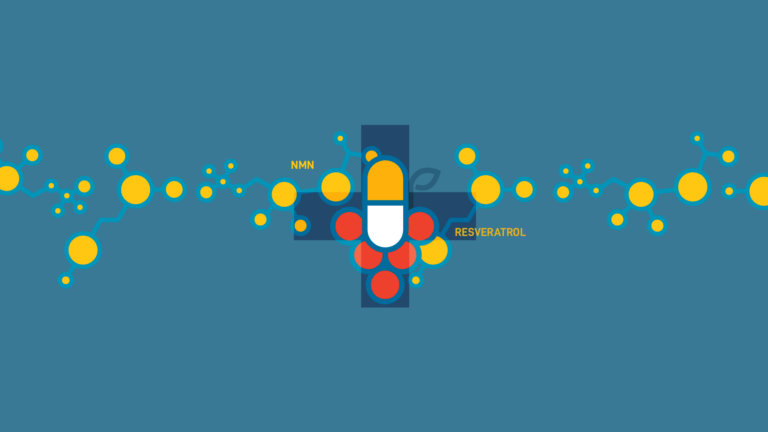One of the most fascinating and hardworking organs in your body may be among the most under-appreciated. It’s the only one capable of actually regenerating itself after sustaining damage, which basically makes it a superhero. It’s also the only organ with a dual blood supply, and it holds the honor of being the largest solid organ in the body. Yes, we’re talking about the liver. But impressive as it may be, the liver is just as susceptible to the passage of time as the rest of the body, and it shouldn’t be overlooked in the healthy aging process. The good news? NMN may play a key role in liver health.
How the liver ages
As the liver ages, all sorts of changes take place. Some of these are structural or cosmetic, like a change in color or size. But an aging liver can no longer metabolize many substances, which is why drug dosages for older adults are often decreased. The liver has a great ability to withstand stress, yet this declines with age, setting up potential toxicity issues that wouldn’t necessarily happen in someone younger, healthier, and producing ample amounts of NMN. What’s more, that nifty regeneration trick that you can count on when you are in your 20s is compromised in aging livers, both in how much can be restored and how quickly.
All of this is problematic in the face of potential liver disease – and there are a lot of them. Over one hundred liver diseases can ultimately lead to liver failure, which would set off any number of catastrophic consequences in the body. The liver, after all, is responsible for various simultaneous functions – everything from cleaning toxins from the blood to producing bile to metabolizing macronutrients. Every time it’s injured, whether by illness, disease, excessive alcohol consumption, whatever, it works hard to repair itself. And in a way, that amazing regenerative superpower is almost like kryptonite. That’s because the repairing process creates scar tissue in the liver. The more regenerative and repair work that takes place, the more scar tissue accumulates – sometimes to the point of interfering with liver function. And while early stages of liver scarring can be managed and even reversed, that’s not the case for later stages, which are permanent.
NAD, NMN, and liver health
Clearly, taking steps to actively protect the liver is a good idea, and there is growing evidence that NMN may slot in nicely. Early studies show significant improvement in various organs, including the liver, with the increase of NAD – a few that can be accomplished with NAD precursors like NMN. A 2020 study looked specifically at the effects of NMN on liver health in both cellular and mouse models to gauge whether it might help limit early stages of liver damage from progressing.

Part of the issue presented by scarred liver tissue is an altered protein network that overproduces collagen proteins. That’s a good thing for strong bones and cartilage, but it’s problematic in the liver. The study found that NMN successfully reduces collagen deposits in the liver, while simultaneously reducing specific liver enzymes in the blood – the very enzymes that increase in response to injury or inflammation in the liver. The big takeaway from the study was that in mice, at least, NMN does indeed prevent liver scarring. Even more promising, the same research team found that human models of liver scarring backed up the theory that NMN might help prevent scar tissue from building up, resulting in improved liver health.
More studies are clearly needed, but researchers are optimistic about what this means for people who could be facing permanent liver damage. In the meantime, we’ll leave you with a few best practices for promoting liver health:
- Drink alcohol in moderation, if at all.
- Eat a balanced, nutritious, and varied diet.
- If you were born between 1945 and 1965, get tested for viral hepatitis.
- Use cleaning products with caution – a number of active ingredients are directly damaging to the liver.
- Enjoy that coffee. Research shows it’s among the best beverages you can drink for liver health (in moderation, of course).
An NMN supplement, like our own Wonderfeel Youngr, could also be a smart move. While research is still warranted to understand NMN’s direct benefits on liver health, we do recognize the value of increasing NAD for the body as a whole. It goes hand in hand with healthy aging, and that’s good news for every organ in the body – superhero or otherwise.













